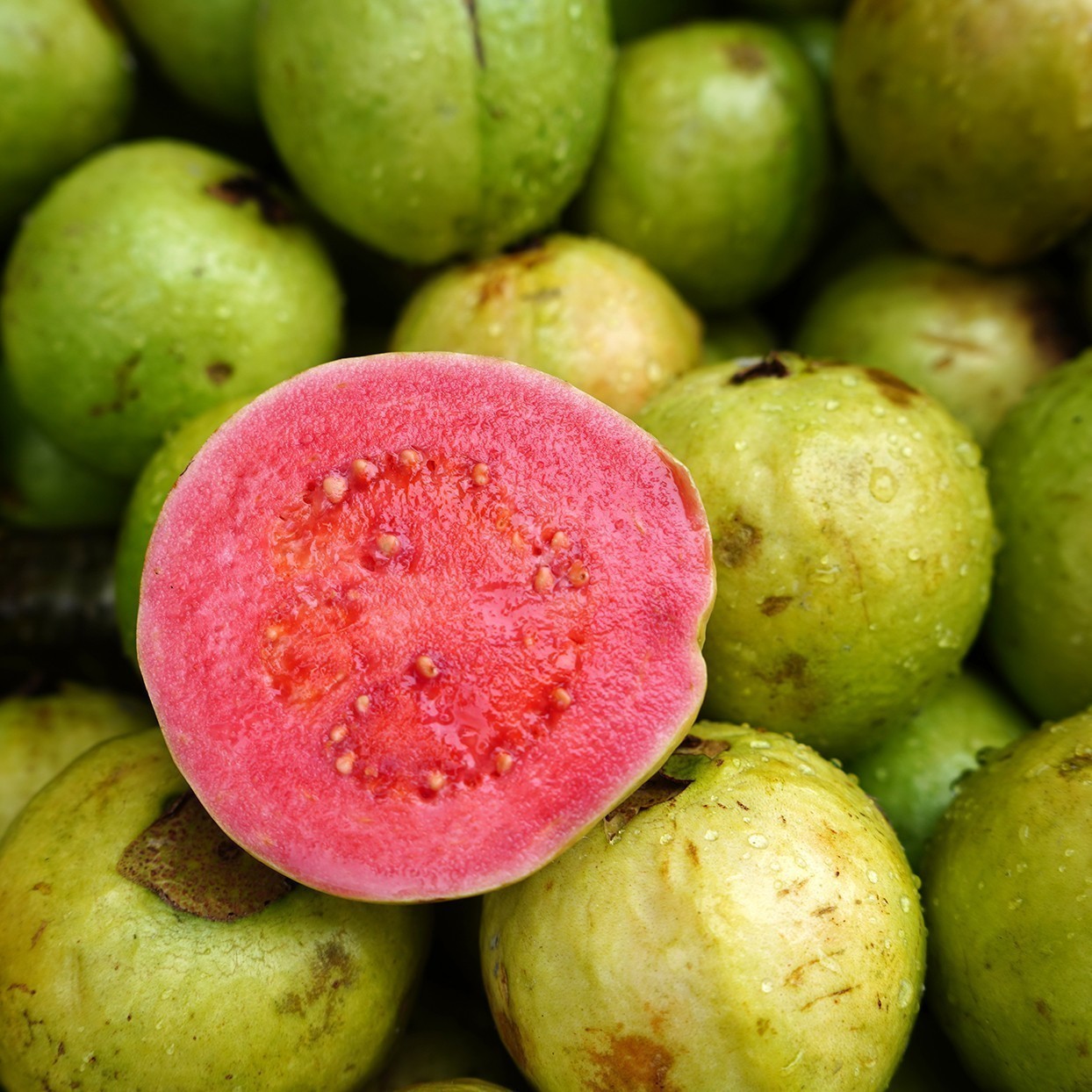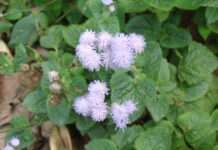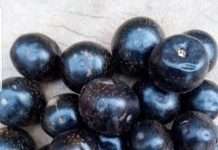Guava, also called sand plum, and botanically known as Psidium guajava (Family: Myrtaceae) is a tropical tree native to Central and South America, the Caribbean, and Mexico. Its fruit is oval with a yellow-green color, while its leaves are long and vibrantly green. It is called goba in Hausa, guaba or gilofa in Yoruba and ugwoba in Igbo.
Constituents
Guava plant contains fibre, mucilage, pectin, protein, fat, minerals like potassium, calcium, iron, phosphorus and manganese; phytonutrients like lycopene, tannins, resins and eugenol; antioxidants, vitamins A, B and C, citric acid, malic acid and folate. The leaves contain essential oils.

Preparations
The fruits are eaten fresh or canned, preserved, spiced or made into jam, butter, marmalade, pies, ketchups and chutneys. Guavas may be dehydrated and reduced to a powder which can be used to flavour ice cream, confections and fruit juices; or boiled with sugar to make jelly; or utilised as pectin to make jelly of low-pectin fruits. The leaves may be used as tea, infusion, decoction, pulp or juice.
Pharmacological actions and medicinal uses
The juice of raw and immature guavas or a decoction of guava leaves is said to be useful in treating bronchitis because it helps in opening up the lungs, soothing coughs, and loosening mucus; it disinfects the respiratory tract, throat and lungs.
Studies report that guava can help in lowering blood sugar and blood cholesterol levels, thereby reducing the risk of diabetes. This may be attributed to the fibre content which also prevents constipation, haemorrhoids and colon cancer. Guavas are said to be useful in the treatment of cancers of the breast and prostate because of the presence of lycopene and other antioxidants.
Ongoing research suggests that the possible weight loss properties of guava can be attributed to its fibre content and comparatively low calories level.
Some sources suggest that the leaves of the fruit are good at treating nausea and vomiting. Guava seeds, if ingested whole or chewed, serve as laxatives by promoting healthy bowel movements.
Literatures report that the fruit and the leaves of guava can treat diarrhoea, as a result of their antimicrobial and antispasmodic properties. The spasmolytic effect of guava leaf extract is reported to be responsible for its ability to relieve cramps of smooth muscle, such as the uterus, thus its usefulness in dysmenorrhea.
The juice of guava leaves is known to cure toothaches, swollen gums and oral ulcers because of their anti-inflammatory and antibacterial properties.
Guavas are a great source of Vitamin K, which helps to remove skin discoloration, dark circles, redness and acne irritation. It is useful in the treatment of leucorrhoea. Topical application of mashed guava leaves can help to get rid of acne and black spots or blackheads. A decoction of the leaves and new shoots, respectively, can be used as vermifuge and febrifuge.
The leaf infusion is prescribed in India in cerebral ailments and nephritis. A combined decoction of leaves and bark is given to expel the placenta after childbirth.
Adverse effects
If taken in excess, guava may cause diarrhoea in pregnant women and breastfeeding young mothers.
Economic uses and potentials
A study in Kaduna State in 2015 reported a net farm income of N169,749.73 per hectare of guava farms. Guava fruit powder costs about N14,500 per 30g while the fruit juice costs about N650 per 500ml bottle. Guava leaves are useful in the textile industries in making black dye. The guava plant has prospects in cultivation, sales, food, pharmaceutical, cosmetics and textile industries.
References
Tadimalla RT (2018). 11 Important Benefits Of Guava Fruit + Guava Nutrition Facts. Stylecraze. October 22.
By Pharm. Ngozika Okoye
MSc, MPH, FPCPharm (Nigeria Natural Medicine Development Agency)













